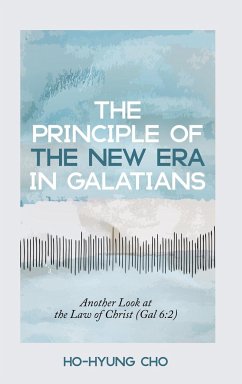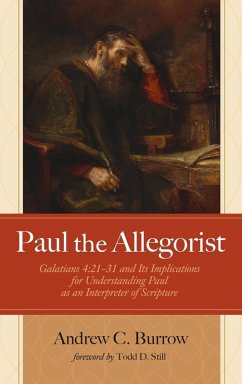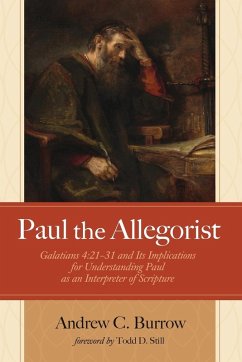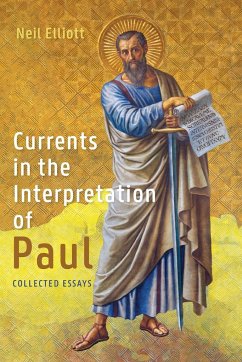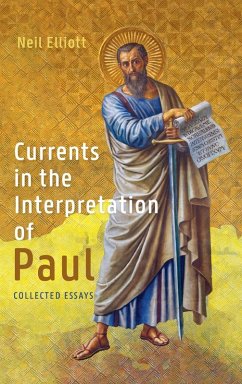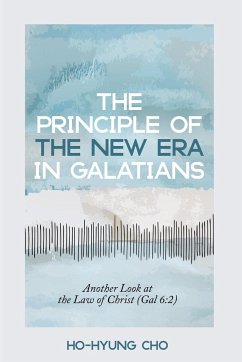
The Principle of the New Era in Galatians
Versandkostenfrei!
Versandfertig in 1-2 Wochen
22,99 €
inkl. MwSt.
Weitere Ausgaben:

PAYBACK Punkte
11 °P sammeln!
This book is placed within broader scholarship's trajectory by explaining that ¿¿¿¿¿ in Gal 6:2 refers to ""principle,"" unwritten law, rather than written law such as the Mosaic law and another law. Because ¿¿¿¿¿ diachronically and synchronically had various meanings in history, the context in which it is found is significant. Given the context of Galatians, while Paul negatively depicts ¿¿¿¿¿ as the written Mosaic law throughout the letter, he positively uses it as a device for striking the ears of the Galatians in the verse. Remarkably, 6:2 is in 5:13--6:10 called paraenesis,...
This book is placed within broader scholarship's trajectory by explaining that ¿¿¿¿¿ in Gal 6:2 refers to ""principle,"" unwritten law, rather than written law such as the Mosaic law and another law. Because ¿¿¿¿¿ diachronically and synchronically had various meanings in history, the context in which it is found is significant. Given the context of Galatians, while Paul negatively depicts ¿¿¿¿¿ as the written Mosaic law throughout the letter, he positively uses it as a device for striking the ears of the Galatians in the verse. Remarkably, 6:2 is in 5:13--6:10 called paraenesis, namely, exhortations that they should perform with the Christian principle of life made by the Spirit. Being led by the Spirit is the sine qua non for believers in Christ. All indications surrounding 6:2 show that the phrase, ¿¿ ¿¿¿¿¿ ¿¿¿ ¿¿¿¿¿¿¿ in 6:2 means ""the principle created by Christ,"" that is, ""keeping in step with the Spirit."" This principle results from the new era inaugurated by the crucified and risen Christ. In 6:2 Paul exhorts the people of the new era to conform to the new era's principle created by Christ.





